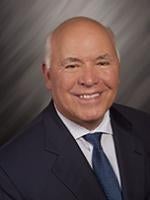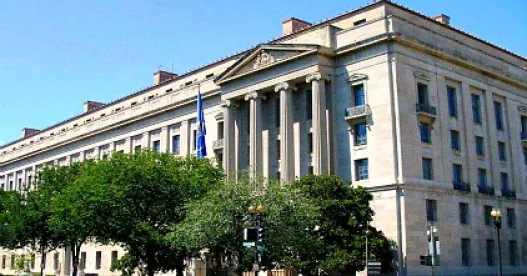Earlier this month, Assistant Attorney General Tony West of the U.S. Department of Justice (DOJ) gave a speech at the Twelfth Annual Pharmaceutical Regulatory and Compliance Congress in Washington, D.C. Among other things, Mr. West repeated a threat, also made a little over one year ago, to seek to hold responsible corporate officials criminally liable for violations of the Federal Food, Drug & Cosmetic (FD&C) Act under what is known as the Park doctrine. In the earlier announcement, the DOJ noted that because multiple nine and 10-figure fines and corporate guilty pleas do not appear to have deterred certain types of violations, most notably off-label marketing, it may be time to prosecute corporate officers.
The Park doctrine derives its name from a 1975 decision of the U.S. Supreme Court in United States v. Park and should be a concern to executives of FDA-regulated companies. In that case, Acme Markets, Inc. was a national retail food chain and Park was its president. In April, 1970, the FDA inspected Acme's Philadelphia warehouse, found insanitary conditions, and notified Park by mail. In November and December, 1971, FDA found insanitary conditions at Acme's Baltimore warehouse and again informed Park by mail. Finally, in March, 1972, FDA re-inspected the Baltimore warehouse and found evidence of continued insanitary conditions. The Government then prosecuted Acme and Park criminally. Acme pled guilty and Park pled not guilty but was convicted by a jury.
At trial, the Government introduced evidence that Park had received the warning letters arising out of the inspections and, as the president of Acme, had the power to remedy the violations. In defense, Park testified that he had delegated authority to remedy the problems to trusted employees. Indeed, some measures were taken to fix the problems, but obviously they were inadequate. An appellate court had reversed Park's conviction because the jury was not instructed that they had to find Park had engaged in "wrongful action." The Supreme Court reversed again, however, concluding essentially that Park could be found guilty simply because he had the authority to prevent or correct the violations and failed to do so:
[T]he Government establishes a prima facie case when it introduces evidence sufficient to warrant a finding by the trier of facts that the defendant had, by reason of his position in the corporation, responsibility and authority either to prevent in the first instance, or promptly to correct, the violation complained of, and that he failed to do so.
The Supreme Court tied this high standard to the nature of the regulated industries:
The requirements of foresight and vigilance imposed on responsible corporate agents are beyond question demanding, and perhaps onerous, but they are no more stringent than the public has a right to expect of those who voluntarily assume positions of authority in business enterprises whose services and products affect the health and well-being of the public that supports them.
In this connection, it is important to note that "responsible corporate officials" are not limited to those directly responsible for the violation. Rather, as the quotations state, any executive whose position has the responsibility and authority to prevent or correct the violation is potentially at risk.
The message is clear. If you are an executive who becomes aware of FDA violations and whose position includes responsibility over the area in question and authority to correct the issue, personally assure that it gets corrected or at a minimum create a documented record that you did everything in your power to get it corrected. In a case of insanitary conditions, it is possible to assure yourself that any problems on an inspection report have been corrected, to implement any necessary procedures designed to prevent their recurrence, and to follow-up to ensure the procedures are being followed. In other cases, such as off-label marketing by field sales representatives, it may be impossible to assure personally that each sales person is following the complex rules. It is possible, however, to make sure they are trained in the rules, understand the illegality and consequences of violations, and suffer some consequence (which can be proportional to the number and severity of violations) if they violate the rules. The key is to do what is within your power to prevent and correct any violations and to document that you have done so.





 />i
/>i

